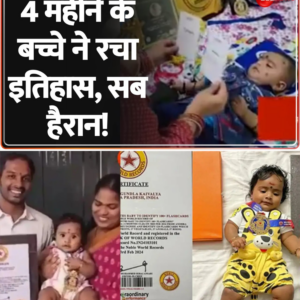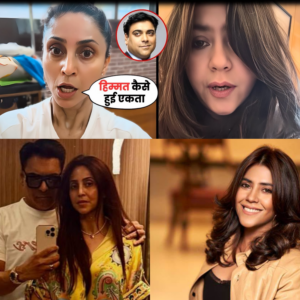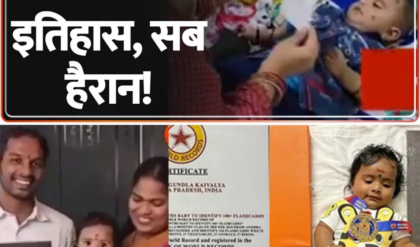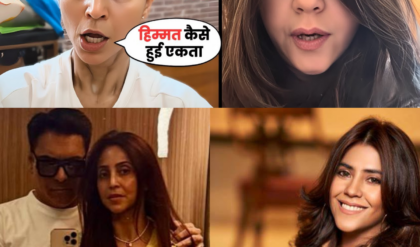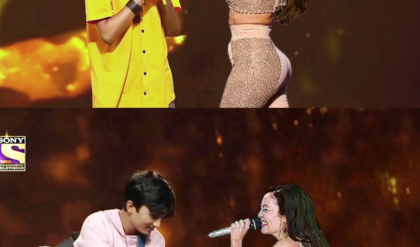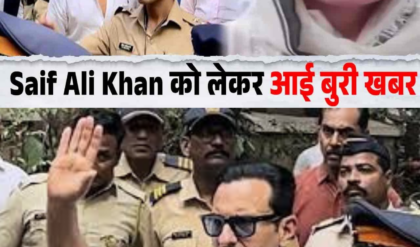Nadeem Khan Angry Over Mithun Chakraborty’s Hate Speech on Muslims  BJP Leader’s Hate Speech in Bengal
BJP Leader’s Hate Speech in Bengal
In a recent and highly controversial incident, Bollywood actor and BJP leader Mithun Chakraborty has come under fire for his inflammatory remarks targeting Muslims during a political event in West Bengal. The speech, which has been widely condemned, has sparked outrage and drawn sharp criticism from various quarters, including prominent figures like Nadeem Khan. This article delves into the details of the incident, the reactions it has elicited, and the broader implications for communal harmony in the region.
FULL VIDEO:
The Controversial Speech
The controversy began when Mithun Chakraborty, a well-known actor-turned-politician, made a speech at a BJP membership drive event in West Bengal. During his address, Chakraborty allegedly made several provocative statements that were perceived as targeting the Muslim community. His remarks included threats and inflammatory language, which many believe were intended to incite communal tensions.
A video of the event, which has since gone viral on social media, shows Chakraborty making statements such as, “If you cut one fruit from our trees, we will cut four fruits of you,” and “We will chop them and bury them underground.” These comments were met with chants of “Jai Shri Ram” from the audience, further escalating the charged atmosphere.
Nadeem Khan’s Response
Nadeem Khan, a prominent social activist and vocal critic of communal violence, was quick to condemn Chakraborty’s speech. In a series of public statements and interviews, Khan expressed his anger and disappointment over the actor’s remarks. He accused Chakraborty of spreading hatred and contributing to the growing divide between communities in West Bengal.
Khan’s response has resonated with many who share his concerns about the rise of communal rhetoric in Indian politics. He emphasized the need for leaders to promote unity and harmony rather than sowing seeds of division. “Such hate speech has no place in our society,” Khan stated. “It is the responsibility of public figures to set an example and work towards peace and inclusivity.”
Legal and Political Repercussions
The fallout from Chakraborty’s speech has been swift and significant. The West Bengal Police have filed a case against the actor under various sections of the Bharatiya Nyaya Sanhita (BNS), including charges of provocation with intent to cause a riot, promoting enmity between groups, and outraging religious feelings. The investigation is ongoing, and there are calls for strict action to be taken against Chakraborty to deter similar incidents in the future.
Politically, the incident has added fuel to the already intense rivalry between the BJP and the Trinamool Congress (TMC) in West Bengal. TMC leaders have condemned Chakraborty’s remarks and accused the BJP of using divisive tactics to gain political mileage. The controversy has also drawn attention to the broader issue of hate speech and its impact on communal harmony in the state.
Reactions from the Public and Other Leaders
The public reaction to Chakraborty’s hate speech has been overwhelmingly negative. Social media platforms have been flooded with criticism and calls for accountability. Many users have expressed their shock and disappointment over the remarks, urging authorities to take stringent action against the actor.
Other political leaders and public figures have also weighed in on the issue. Several prominent figures from various political parties have denounced the speech, calling for a united stand against hate speech and communal violence. The consensus among many leaders is that such divisive rhetoric has no place in a democratic society and must be addressed promptly and effectively.
The Role of Media and Civil Society
The media has played a crucial role in bringing attention to the incident and ensuring that it is widely reported. News outlets have covered the story extensively, highlighting the repercussions of hate speech and the need for responsible communication by public figures. The coverage has sparked important conversations about the impact of divisive rhetoric on communal harmony and the steps needed to prevent such incidents in the future.
Civil society organizations have also been vocal in their condemnation of Chakraborty’s remarks. Various groups have organized protests and issued statements calling for action against hate speech. These efforts underscore the vital role that civil society plays in holding leaders accountable and promoting peace and inclusivity.
Broader Implications for Communal Harmony
The incident involving Mithun Chakraborty is a stark reminder of the challenges India faces in maintaining communal harmony. Hate speech and inflammatory rhetoric can have far-reaching consequences, exacerbating tensions and leading to violence. It is crucial for political leaders and public figures to recognize the power of their words and the responsibility they bear in fostering a peaceful and inclusive society.
Nadeem Khan’s condemnation of Chakraborty’s speech highlights the importance of standing up against hate and promoting unity. His call for leaders to set a positive example is a timely reminder of the need for empathy, understanding, and respect for all communities.
The Path Forward
In the wake of this controversy, it is essential for political leaders, public figures, and citizens to work together to promote communal harmony and address the root causes of division. Education and awareness campaigns can play a vital role in fostering understanding and tolerance. Additionally, legal frameworks must be strengthened to ensure that hate speech and incitement to violence are swiftly and effectively addressed.
Conclusion
The controversy surrounding Mithun Chakraborty’s hate speech has sparked a significant backlash and brought attention to the issue of communal rhetoric in Indian politics. Nadeem Khan’s vocal criticism underscores the importance of promoting unity and condemning divisive language. As the legal and political repercussions of the incident continue to unfold, it serves as a reminder of the need for responsible leadership and the pursuit of communal harmony in India.
The path forward requires a collective effort to promote peace, understanding, and respect for all communities. By standing against hate speech and fostering a culture of inclusivity, India can move towards a more harmonious and united future.
News
Vivansh World Record: 4-Month-Old Baby Makes History, Everyone Shocked! Breaking News
Vivansh World Record: 4-Month-Old Baby Makes History, Everyone Shocked! In a world where records are set by seasoned athletes, technological prodigies, and lifelong achievers, a tiny miracle has stunned the globe. At just four months old, baby Vivansh Rajendra…
Ram Kapoor’s Wife Gautami Lashed Out Ekta Kapoor For Dig At Her Husband’s Weight Loss
Gautami Kapoor Shuts Down Ekta Kapoor’s Remarks on Ram Kapoor’s Weight Loss: A Bold Statement on Health, Respect, and Love In the glitzy world of Indian television, where image often overshadows essence, one power couple just reminded the world…
Terrible News: Popular TV Actor Aasif Sheikh Involved in an Accident
Terrible News: Popular TV Actor Aasif Sheikh Involved in an Accident In a recent and alarming incident, renowned television actor Aasif Sheikh, best known for his role as Vibhuti Narayan Mishra in the popular sitcom Bhabiji Ghar Par Hain,…
Mohammad Faiz and Neha Kakkar – Superstar Singer Season 2
Mohammad Faiz and Neha Kakkar – A Magical Journey on Superstar Singer Season 2 In the realm of reality television, few shows manage to capture hearts across generations the way Superstar Singer has. With a focus on young singing…
Top 6 Nutrients to Stop Leg Weakness in Seniors – Fast!
Top 6 Nutrients to Stop Leg Weakness in Seniors – Fast! As we age, maintaining strength and mobility becomes increasingly essential to living independently and enjoying a high quality of life. One common complaint among seniors is leg weakness,…
Top 10 Foods to Prevent Leg Cramps in Seniors — Even at Night!
Top 10 Foods to Prevent Leg Cramps in Seniors — Even at Night! Leg cramps are painful, involuntary muscle contractions that can strike without warning—often at night, disrupting sleep and affecting quality of life. Seniors are especially vulnerable…
End of content
No more pages to load
